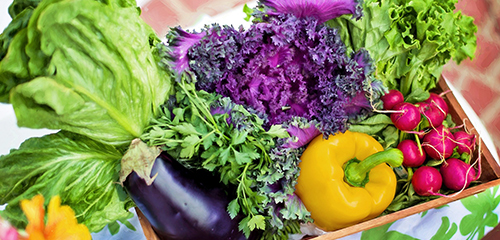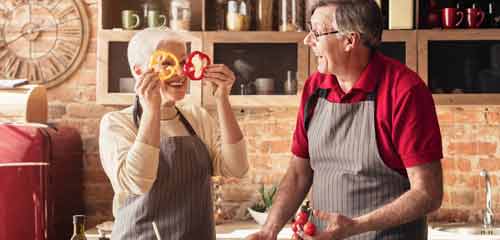Plastic cups, rubbish bags at the picnic, disposable cutlery – the list of summer plastic waste can be long. Here are a few changes you can make to cut down during the sunny months
Summer event planning is in full swing; picnics, beach barbecues, garden parties. And when organising a summer gathering, convenience can often be high on our priorities list.
Whether you’re doing that last-minute supermarket dash to pick up extra napkins and plastic cups on the way to the beach, or worrying about having enough plates and glasses, plastic can often find its way into our events.
Plastic consumption
It is estimated that in the UK, 5 million tonnes of plastic is used every year. Much of this plastic has ended up in the ocean as floating debris. Threatening not just our marine life, recently plastic has also been found in our own bloodstreams.
The current recycling rate for plastic waste is 44.2 per cent in the UK. Additionally, this statistic includes energy that’s recovered from plastic incineration and plastic waste exports. So before you think we’re doing okay, that 44.2 per cent doesn’t actually mean almost half the plastic in the UK is actually turned into something else.
Want to help reduce plastic use? With a few investments in reusable swaps, you can reduce your plastic usage, AND remove the car emissions from that last-minute supermarket run!
Prepare food at home in reusable storage tubs
A simple change to enact this summer – and it doesn’t even need to be fancy Tupperware or whatever. Put some of those plastic takeaway tubs to use, and store your sandwich or snacks in them in it for the family picnic, rather than wrapping in cling-film. Save huge glass jars with lids (or invest in some Kilner jars or similar) to stack salad and snacks in, and keep in the fridge.
Ditch the clingfilm altogether and get beeswax wraps, for both food in the fridge, and food on the go. If you can’t get on with the beeswax, invest in some silicone wrappers. They sit snugly over most things and will last for years.
Drinks on the go
Re-imagine your camping essentials. You might already have some steel tumblers from camping trips of days gone by, for example. These don’t have to be exclusively used for camping. That evening wine on the beach, or park picnic cocktail can be sipped from a camping cup. Additionally, many of these steel tumblers are insulated, keeping your drink cooler than a plastic cup ever could.
For something a bit more glam, how about Mason jars for your cocktails. Or invest in some pretty acrylic glasses that will last you eons. Get some reusable metal straws or bamboo straws – or paper ones if you like.
And of course there are reusable drinking bottles. Fill up at home rather than buying plastic bottles of drinks when you’re out and about.
Hot drinks of course go into your vacuum flask – or your camping cups! Most coffee outlet cups are not recyclable as they have a thin film of plastic within the structure to make them leak-proof. Try and avoid buying them, however much you like your cappa-frappa-iced-fancy-coffee on the run!
Ice trays over bagged iced
Talking of ice… It can be easy to just opt for picking up a couple of bags of ice in the weekly supermarket shop. However, using ice cube trays is much better for reducing your plastic waste. You just need to plan ahead a bit.
If you need a large amount of ice, but only have a couple of ice trays, set up a clean box in your freezer and pop out the ice cubes from their trays, into the box, once they’re frozen. Fill up the tray again, and repeat. Soon you’ll have a box full of home-frozen ice to dip into.
Also, you can pop your cooling blocks for your picnic bags and cooling bags in there too. They can be used for cooling a number of things as well; like standing a cool bowl of salad on. Get creative; use your imagination.
Cutlery, plates etc
Obviously the most sensible option is to just take this kind of thing with you from home. But if you prefer to keep things separate, or you don’t want to cart heavier items around, there are planet-friendly options.
If you prefer disposable options, look for plates, cups, and bowls made from biodegradable or compostable materials like bamboo, palm leaf, or bagasse (sugarcane fibre).
Think about the other aspects of your picnic – take linen napkins, washable tablecloths, picnic blankets, and so on, rather than disposable things. Paper napkins might not be made out of plastic, but the wrappers they come in is.
Buy fruit and veg from farmers markets
You’ll find that when you buy fresh produce from a farmers market, there is virtually no plastic in sight. Additionally, you’re supporting local farmers, and getting produce that’s locally grown. Dropping your carbon footprint even further.
Some UK grown produce that’s in season right now includes berries like blackcurrants, strawberries, and blueberries. Staple vegetables that are also in season; tomatoes, new potatoes, and onions. See the full list.
Opt for eco-minded tours or hotels on holiday
When booking your summer holiday, or the activities on your holiday, do some research into picking a sustainably designed event or holiday.
When picking a hotel, look into whether the hotel’s sustainability movements do more than simply removing single use plastic in their operations. Expanding hotel chain 1 Hotels, for example, have been built from reclaimed materials, and function under a zero waste program, so that nothing goes to landfill. Look before you leap into booking your summer activities.
Whatever you can do
It goes without saying that whatever changes you can make are worth doing. Not everyone can afford to shop at a farmers market every week, or pay the potentially premium cost of a sustainably run hotel.
However, the swaps and shifts you can make across the seasons will inevitably save some of that plastic ending up in landfill or in our oceans.



